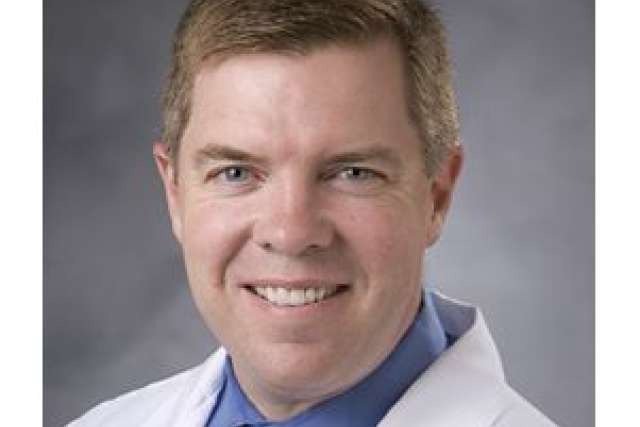Chute, a member of both UCLA’s Eli and Edythe Broad Center of Regenerative Medicine and Stem Cell Research and UCLA’s Jonsson Comprehensive Cancer Center, was the only clinician–scientist to receive a Leadership Award from the California Institute of Regenerative Medicine, which announced the honor May 29.
The award is intended to bolster California’s efforts in stem cell research and to help further the mission of scientists to translate scientific discoveries directly to into medical treatments and cures for patients.
Chute, a professor of hematology–oncology in the UCLA departments of medicine and radiation oncology, came to UCLA earlier this year from Duke University. His groundbreaking research focuses on hematopoietic stem cells (HSC), the cells that become blood cells, and how they grow. Specifically, he and his colleagues are exploring the mechanisms by which cells in the bone-marrow microenvironment regulate HSC self-renewal, repair and regeneration.
Among Chute’s multiple discoveries are two novel proteins that are essential to the growth of blood cells. With his knowledge and discoveries, Chute and his team can also understand how leukemia stem cells use the same mechanisms in their growth and target those growth factors with cellular therapies.
"We’ve shown that our approach of creating genetic mouse models to find proteins that regulate HSC growth works," Chute said. "We are now poised to translate some of these into Phase I clinical trials. Thus, there is strong translational value in our work and it is a validated discovery program for understanding how the microenvironment cells regulate HSC in the body."
The Research Leadership Awards help universities and research institutions attract the best stem cell scientists from outside California who have established themselves as independent investigators and emerging leaders in the field. The award funding allows recipients to pursue high-risk, high-payoff research that would not be adequately supported by other sources. The funding period is five years, and each eligible California institution can have only one recipient.



